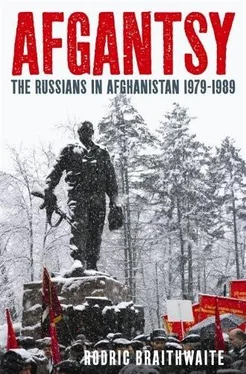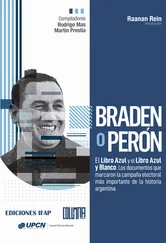While a war is still going on, the soldiers are told or convince themselves that everything will be different once it is over, that they will be rewarded with jobs, and homes, and appreciation by a grateful government and people. They are almost always disappointed. Prime Minister Lloyd George campaigned in 1918 on the election promise that he would ‘make Britain a fit country for heroes to live in’. 10It did not happen. Within a couple of years, the country was hit by an economic slump which left many of them without jobs or proper homes. The victory of the Labour Party in the British election of 1945 led many soldiers to believe that this time it would be different. The new government did indeed create full employment, a tax-funded universal National Health Service, and a cradle-to-grave welfare state. But although Labour fulfilled its promises, Britain after the war was a very poor country. Housing was scarce, not least because so much had been destroyed by German bombing. The national finances were in disarray. Food rationing did not finally end until July 1954. The promises to the veterans were largely fulfilled, but at a miserable level.
The soldiers who returned from Afghanistan were just as convinced that their government had promised them jobs, homes, medical care, benefits in kind, and cash. But because the Soviet Union was on the verge of political and economic collapse, many veterans found it hard to get even the things they were entitled to. The financial benefits were inadequate, and homes and jobs were few and far between as factories shut down and workers were laid off. Artificial limbs were crude or non-existent. So were even simple things like wheelchairs. Veterans found it hard to cope with the psychological trauma of battle, or kick the habit of drugs and violence acquired in Afghanistan. Some broke with their wives and girlfriends. Some took to crime. Most did in the end find their way back into civilian life. But all felt some sense of betrayal. ‘The boys had lived through so much over there, they’d looked death in the eye, they’d lost their friends… Then they came home to our everyday, not very cheerful life, and their raw nerves… felt all the falsehood, the hypocrisy, the indifference, the gross prosperity of some and the bitter poverty of others. And they were hurt, too, because no one cared about what they had been through, about their physical and spiritual wounds. That’s when they began to idealise the past.’ 11
In February 1980, just after the war began, the government increased the wages and improved the pensions of regular soldiers and provided for the families of those who had died. It made no specific provision for conscripts. If the soldier became an invalid, he might qualify for the same benefits as an invalid from the Second World War, but by 1980 these had become quite inadequate. Otherwise he qualified only for the even less generous benefits available to those who had suffered an injury at work.
Another decision followed two years later which specifically covered soldiers and civilians in Afghanistan and their families ‘for the successful execution of tasks set by the Government of the USSR’. It did not mention that these ‘tasks’ were military. It provided pensions, medical services, housing, transport, and so on, similar to those granted to veterans of the Second World War, though more limited in scope. There was less to these improvements than met the eye. In the first place the benefits were not at all generous. They were paid according to rank. An officer got a one-off grant equivalent to three months’ pay. A soldier who had served beyond his term got five hundred roubles. A conscript got three hundred roubles. Invalids got half that amount, but they were given a month in a sanatorium after coming out of hospital. Benefits were also set for the families of the dead, whether they were soldiers or civilians. But this was a framework decision only, and had to be supplemented with a whole raft of executive regulations. These were not published, and local authorities were often either ignorant of them or ignored them. 12So the veterans stumbled into a wall of bureaucratic confusion and obfuscation. Unhelpful officials would say, ‘It wasn’t me who sent you to Afghanistan,’ to justify their refusal to give the veterans the benefits to which they thought they were entitled.
By now the press was weighing in openly. In 1987 Pravda wrote of the difficulties veterans faced at the hands of their fellow citizens, who themselves were short of money, proper medical care, and adequate accommodation, and saw little reason why the queues should be jumped by men who had not, after all, been fighting in a real war. An opinion poll of veterans conducted by Komsomolskaya Pravda reported that 71 per cent of the veterans thought that the benefits existed only on paper. 13The veterans still found it hard to discover their rights. And there was no coherent administrative mechanism to administer the benefits properly, no one-stop shop. The veterans had to traipse from one bureaucratic office to the next in order to get what they were entitled to.
In February 1989 the Afgantsy were given the formal status of ‘Warrior-Internationalists’, a term first applied to the foreign volunteers who fought on the Soviet side during the civil war of 1917–23, and then to the Soviet soldiers who fought in the Spanish and Chinese civil wars, and on the side of ‘progressive’ regimes in Cuba, Korea, Angola, Ethiopia, Vietnam, and elsewhere. An appropriate campaign medal was issued. It consisted of a five-pointed star on a gold laurel wreath. In the centre was a handshake, and under it a shield, as a symbol of the defensive nature of the operation. None of this satisfied the Afgantsy, who wanted to be given the same status as veterans of the Second World War. 14
Housing was perhaps the worst nightmare of all. When a veteran killed himself because he had been unable to get anywhere to live, one of the trade union officials involved commented, ‘I understand what it was like for him. When the boys were fighting in Afghanistan they were probably promised the earth. But the factory can’t just provide an apartment at the drop of a hat. The necessary regulation doesn’t exist. And then you have to understand that we have to build the houses ourselves, and with the dreadful new accounting standards we can barely make ends meet. Sasha was the twelfth in the queue. There were veterans from the Second World War ahead of him, and Afghan veterans too, who had arrived in the factory before he got here.’ 15
The Soviet Union had always been a very poor country. There had never been enough wealth to support the general promise of the country’s state welfare system to its citizens. With the best will in the world, the promise of special privileges for returning veterans could rarely be fully met in practice. One returning officer recognised the problem: ‘The country’s level of economic development set the level of social help that the state can give to the various levels of society. If we did not have a housing problem, we would not have a problem finding accommodation for the Afgantsy… It’s not a result of a lack of warmth, it’s not a result of a lack of attention, it’s the result of the problems which exist in the country.’ 16
Not surprisingly, however, few veterans saw it that way. They felt that society had failed to award them even the moral recognition to which they were entitled. The promises that had been made to them were not fulfilled. They had to struggle to get the meagre benefits to which they were entitled. And some civilians grudged them even these. 17
But one way in which the treatment of the Afgantsy differed from that of the veterans of earlier wars was a direct result of the loosening of the rigid state control which had marked all public activity in the Soviet system. For the first time it became possible for citizens to found their own independent organisations. Towards the end of the war, a number of official and semi-official organisations were set up to help the veterans directly and to bargain with the authorities from a position of greater strength. The importance of this change should not be exaggerated. Some of the new organisations were not very efficient. Some of them were rather corrupt. It sometimes looked as if they were run not so much to benefit their members, but to bring prestige, position, and wealth to their leaders. They were often very close to the authorities.
Читать дальше












